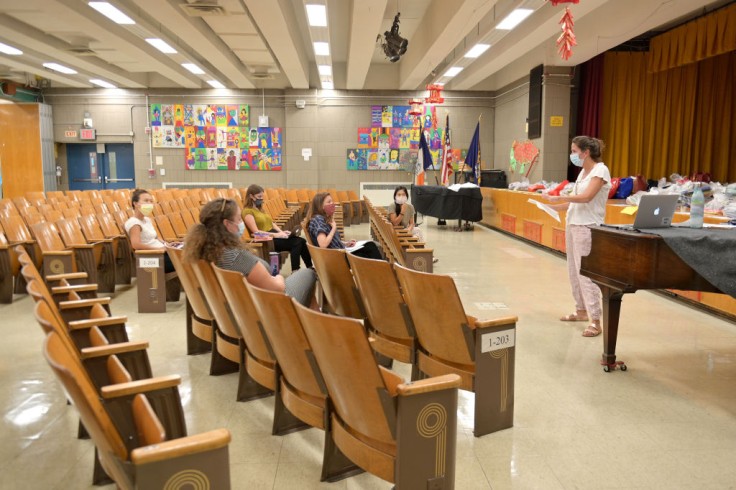
NYC teachers are fighting for public funding to cater to their students with disabilities.However, the United Federation of Teachers (UFT) is fighting to the contrary. The City Council bill would provide interest-free loans to private schools and programs that serve students with disabilities.
The bill, introduced by Brooklyn Councilman Justin Brannan, aims to address the long delays in tuition repayment that yeshivas and other private schools complain about when serving these students.
The Orthodox Union, a major advocacy group for Jewish schools, supports the bill. However, the UFT opposes the legislation, saying that the Department of Education (DOE) should do a better job of paying vendors instead of creating another layer of bureaucracy.
Special Education Funding and Placement
The funding and placement of students with special needs have been challenging for decades.
According to the Department of Health of New York State, federal law requires the government to cover the cost of private tuition when public schools cannot meet the needs of students with learning or physical disabilities, such as dyslexia or speech impediments.
However, parents have sued the city and other school districts for failing to provide mandated services for students with mental and physical deficits.
As reported by the New York Times, schools have subjected students with disabilities to tactics known as "informal removals," which can include repeated dismissals in the middle of the day or shortening students' education to a few hours a week.
According to a report, schools in New York City use several tactics, referred to as "informal removals," to remove students with disabilities from class, which are often in violation of the federal civil rights protections for those with disabilities.
These tactics include off-the-book suspensions that occur hundreds or even thousands of times per year, as well as transfers to programs that do not exist, leaving students involuntarily without education.
The UFT has opposed the Brannan bill, saying that it is unnecessary and irrational. The union argues that DOE should fix its processes instead of adding another program to its administrative pile.
The bill creates a particular group of vendors and requires DOE to pay them with one hand, then collect the same money back as a loan repayment with the other. The UFT contends that telling a bureaucracy to simply "hurry up" is not a solution.
Teach NYS: A Lifeline for Parents
According to the New York Post, Teach NYS, a group representing Jewish day schools and yeshivas, believes that the UFT opposition is misplaced.
According to Sydney Altfield, the group's executive director, some who oppose the bill either do not understand how it works or do not comprehend the challenges faced by families with special needs in the city's school system.
Altfield stated that Councilman Brannan's bill is a lifeline for parents who cannot afford to pay thousands of dollars to finance an education that the city is required to provide. At no extra cost to taxpayers, the bill provides a game-changing solution to a long-standing problem.
Furthermore, Mayor Eric Adams' office did not take a position on Brannan's bill. The office said it was working with DOE and the City Council to improve education and services for students with disabilities. The mayor himself has talked about struggling with dyslexia as a child.
This debate over special education comes weeks after city officials stopped doing business with 20 companies that provided services in private schools, primarily yeshivas, amid concerns about fraud.
NYC teachers and the UFT are fighting against a bill that would provide interest-free loans to private schools and programs that serve students with disabilities.
The funding and placement of students with special needs have been a decades-long challenge, and schools have used "informal removals" that violate federal civil rights to remove challenging students with disabilities from class. The debate over special education in New York City highlights the ongoing struggle to provide a free and appropriate public education for all students, regardless of their abilities.